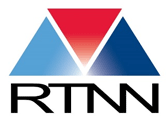
Led by RTNN director Dr. Jacob Jones, a team of researchers from NC State, UNC-CH, Duke, and RTI has been announced as a GRIP (Game-Changing Research Initiative Program) awardee for their project “Water Sustainability through Nanotechnology: Nanoscale Science and Engineering at the Solid-Water Interface.” Water is a fundamental requirement for life. However, universal access to clean water has become a crisis facing society, evidenced by continuing droughts and contaminated water supplies in major population centers. There is an emergent need for innovative, sustainable technologies to improve and maintain worldwide availability and quality of clean water. Development of new materials, membranes, and separation processes are essential to more efficiently create drinking water from salt water (desalination), reclaim clean water from waste and local streams (wastewater and point-of-use treatment), and to recover contaminants of value from water (resource recovery). Engineered nanotechnologies and nanomaterials can be used to uniquely address many emerging challenges in water sustainability due to their high surface area, reactivity, and surface and interfacial phenomena. Empowered by a multi-agency Nanotechnology Signature Initiative released in March 2016, the team will launch an ambitious effort to catalyze several interrelated, game-changing research activities for substantially increasing water availability at lower cost. The effort will position NC State, RTI, and partnering institutions including Duke and UNC-CH as a leading team at the water-nano nexus.
More information about the GRIP and other awardees can be found in the NC State press release and on the GRIP website.






